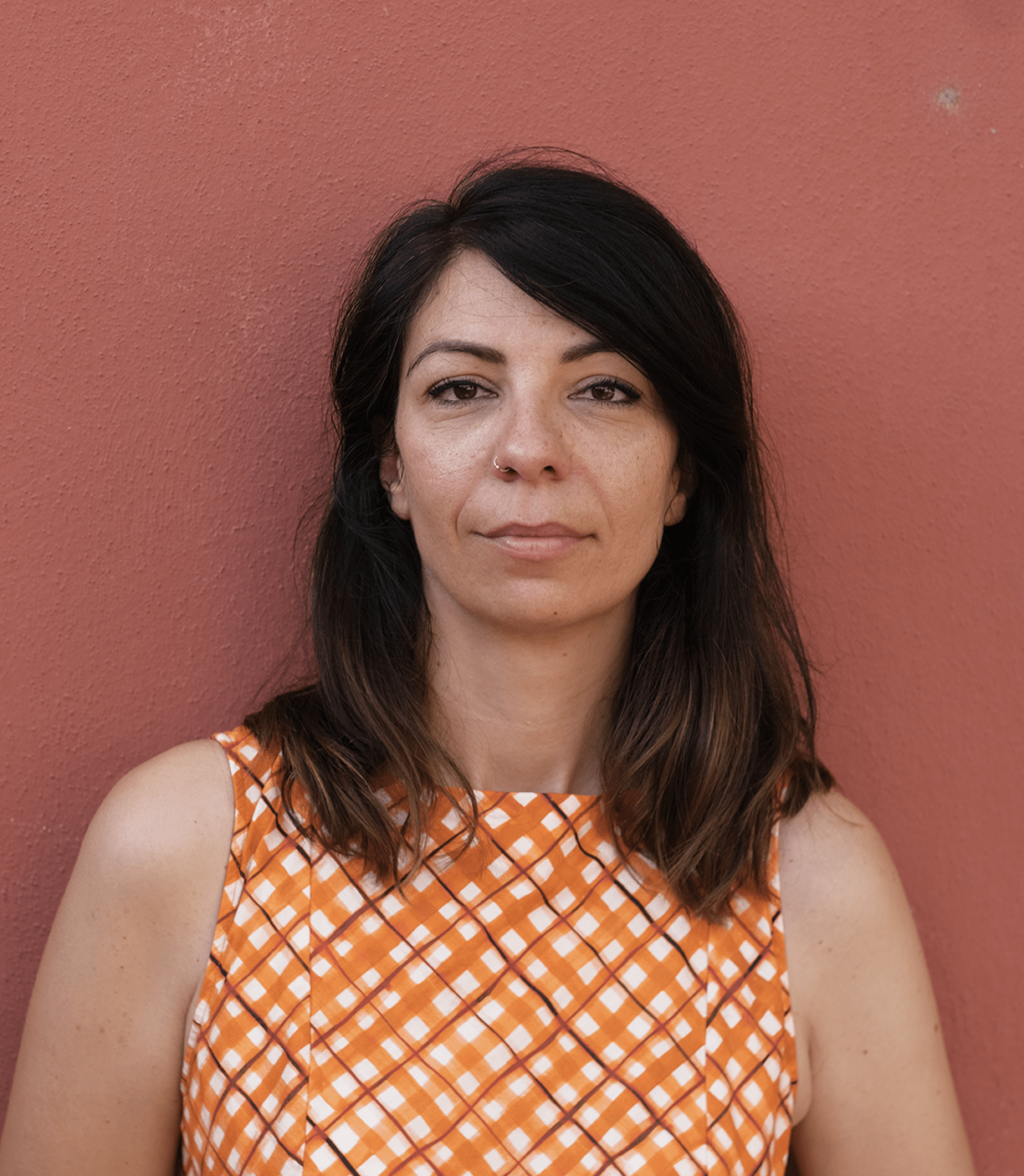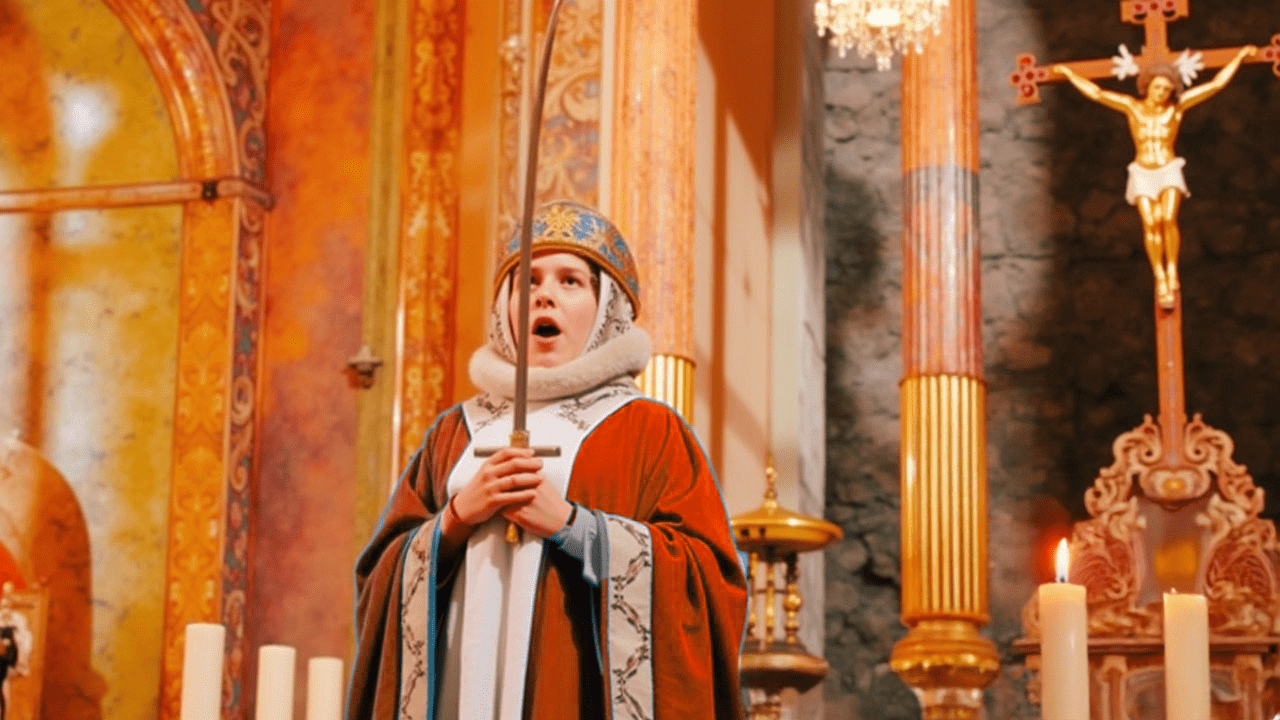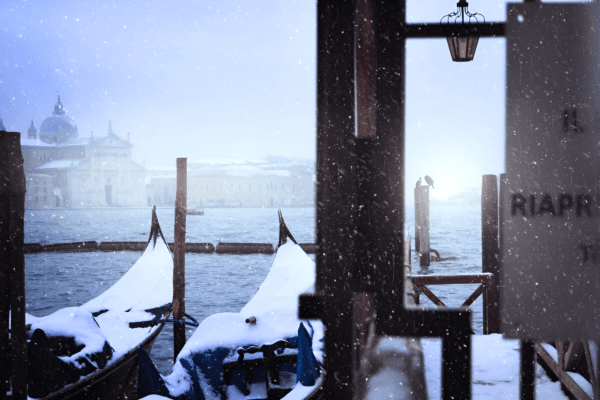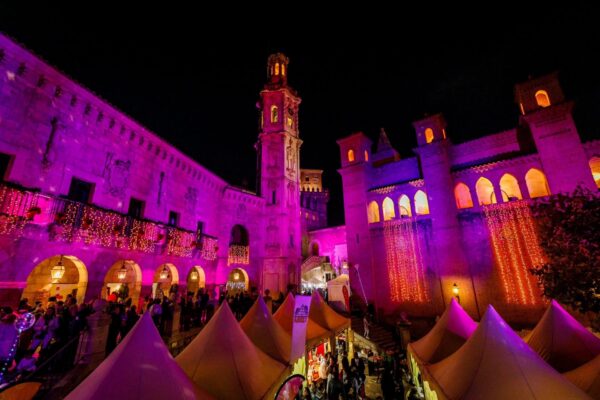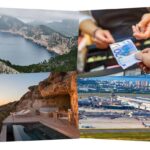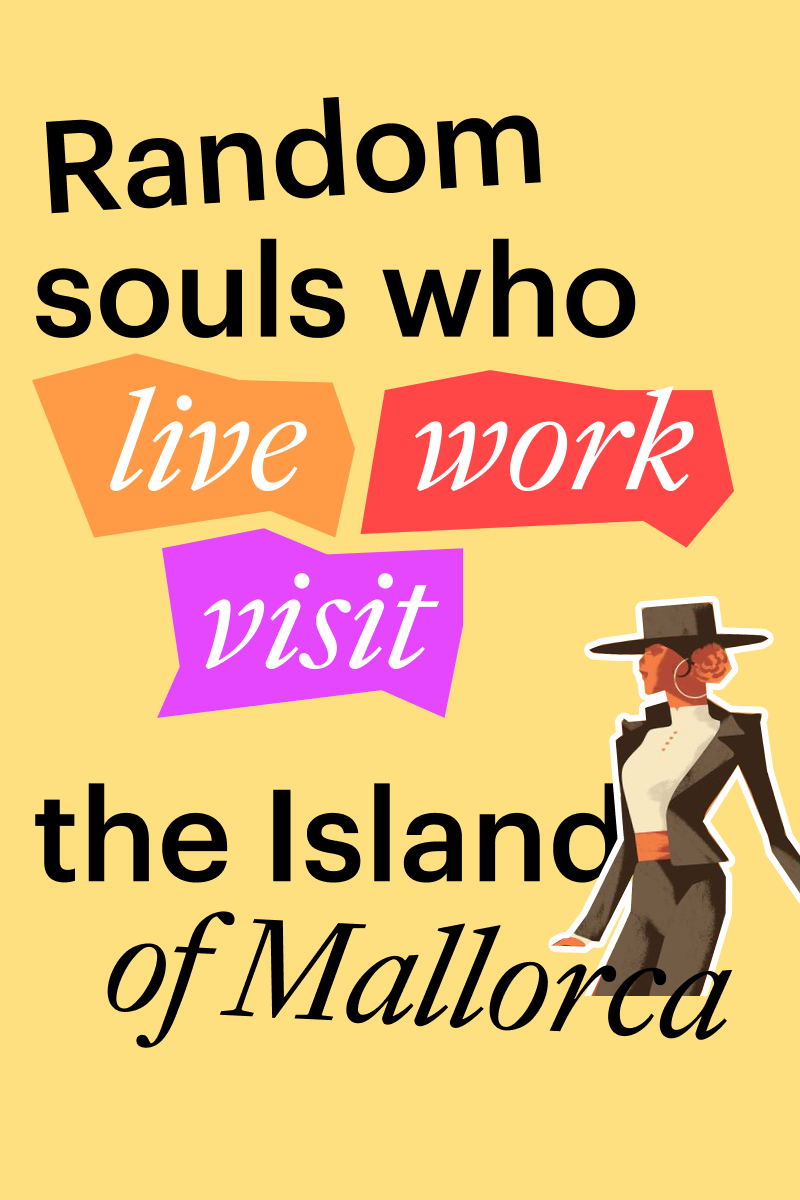In this exclusive Q&A, Mallorca-born screenwriter and film director Marga Melià opens up to ‘Humans of Mallorca’ about her journey to becoming the first woman in the Balearic Islands to release a feature-length fiction film in cinemas. From her childhood dreams of being a writer to her reflections on Mallorca’s tourism challenges, Melià shares her story of persistence, creativity, and a deep connection to her home island. Here, she offers insights into the challenges of filmmaking, balancing work and family, and her hopes for the future of Mallorca.
Where were you born?
I was born in Palma.
Where did you study?
I studied journalism and scriptwriting in Barcelona. Then I spent a year learning languages in Berlin and Bologna.
As a child, what did you want to be when you grew up?
I wanted to be a writer.
Who are your parents?
My father was an extremely intelligent and cultured man, with a lot of charisma, who lived in several countries and worked as a guide and interpreter. My mother is a wonderful woman, also very cultured, who in her youth worked, like my father, in the tourism sector.
What did they give you in life? What are you grateful for?
They gave me so much… They gave me an irrepressible zest for learning new things; I got my love of reading and cinema from them, and their passion and curiosity for the world around us; they instilled in me values such as the importance of loyalty and effort; they taught me to put into practice what I think, to enjoy the little things, to take care of others… I am very grateful to them.
Where do you live now and why do you like this place?
I live in Palma, in the city center. After living for many years outside the island, I decided to come back here at the end of 2011. It is a very pleasant city to live in, where you can go almost everywhere on foot, but which is also big enough to often surprise you with its vibrant cultural scene.
How did you choose your profession?
I have always enjoyed telling stories. I started out as a journalist and, since 2012, I’ve been telling these stories by writing and directing films. Ultimately, for me, both occupations have a lot in common: they allow you to explore the world and reflect on human relationships and on yourself, and then communicate to others what you have discovered.
What is the most interesting thing about your job?
Working as a screenwriter and film director is tough, but it’s also exciting. It allows you to learn new things every day, constantly challenge yourself, reinvent yourself again and again, meet interesting people on each new project… There’s never a dull day!
Can you describe a typical day in your life?
When I’m not filming (filming is only a small part of my job), I get up around 7.30, have breakfast and take my son to school. We walk: the school’s just five minutes from home. Then I have a coffee on a terrace while I read a bit and then I go to my office, which I share with my husband, where we work until 4.30 pm. Afterwards we usually go together to pick up our son from school and we go to the park or take a walk. Several days a week I go to the gym before dinner. After dinner we read a story and put our son to bed. Sometimes I fall asleep next to him and other times I manage to get up and go to the living room to watch a film with my husband or read for a while.
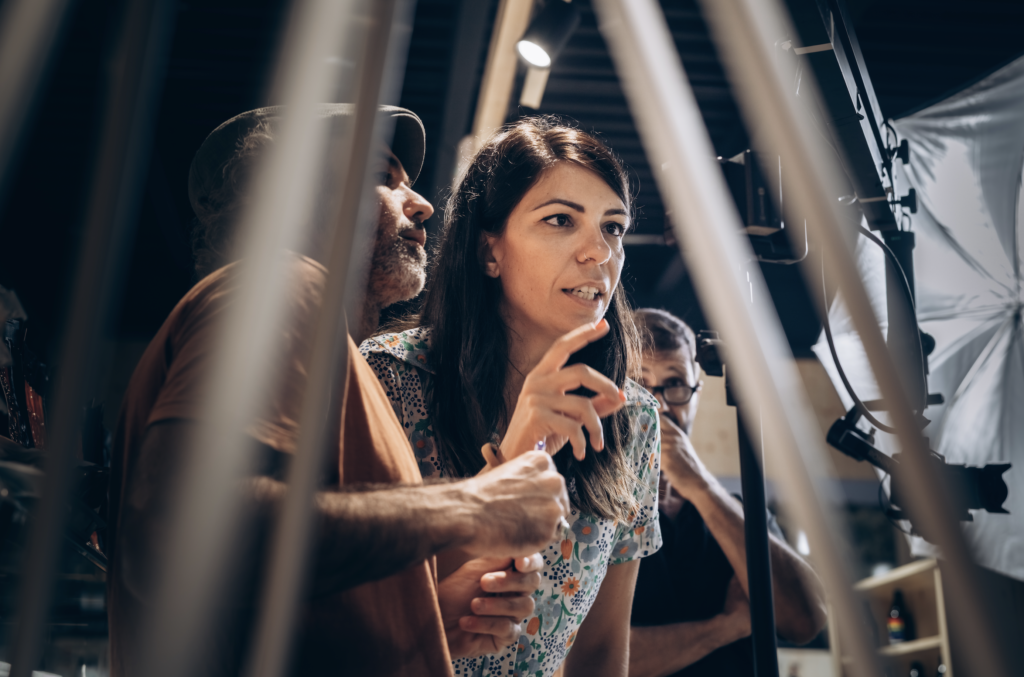
What was your first professional success?
My first professional success was publishing the book of interviews Soportando el paraíso. In it, artists such as Miquel Barceló, Agustí Villaronga, Rossy de Palma and Carme Riera talked about their life and work, as well as their relationship with Mallorca.
With regard to cinema, my first professional success was in 2017 when I became the first woman in the history of the Balearic Islands to release a feature-length fiction film in cinemas. The film is called Bittersweet Daysand it is a very small film, which we decided to make among a few friends and with very limited resources. When it was finished, we managed to take it to several international festivals, release it in theaters in the main Spanish cities and get it onto the catalogs of the main platforms. Today it continues to be seen all over the world thanks to Netflix, Amazon Prime Video and Filmin. That is a huge triumph for a film as modest as ours.
What challenges did you face?
Directing films is very difficult, even more so if you are a woman (on average, only one in four films is directed by a woman), even more so if you make independent films, and even more so if you decide to do it from Mallorca. But, like everything in life, I think the secret is to see all these difficulties as a challenge rather than a problem.
Did you ever feel like you couldn’t go on?
When I was very young and about to finish my degree, I went through depression. Later on, I went through several periods where I had a really bad time because of my anxiety disorder.
How did you overcome this? What or who helped you?
The person who has undoubtedly helped me the most has been my husband. Also my mother, my friends and my therapists (I have had several wonderful ones).
What conclusions did you draw after this?
I realized that one of the most important things in life is knowing how to surround yourself with good people, who know how to listen to you, understand you and take care of you (and you take care of them, of course). The value of kindness is undervalued in our society. On the other hand, I also learned that the key to overcoming the greatest difficulties in life is to have enough humility to accept that you cannot do everything on your own and that you should always ask for help.
What are you most proud of?
I am proud that I have worked hard to achieve a full and happy life despite my anxiety issues. I am also proud of the balance I have achieved between my demanding professional life and my family life. I don’t want to give up enjoying either of them, and achieving balance is not always easy. I often think of something my father always told me: “Get your priorities right”, and I try to apply it in all aspects of my life.
What do you think about the protests against mass tourism in Mallorca?
We should have put limits on mass tourism in Mallorca a long time ago. We have reached an extreme and unsustainable situation on many levels. We Mallorcans are fed up: tourism has given us a lot, but it has also taken a lot from us. If we want the island to keep its essence and if living here is to continue being worthwhile, everything needs to be managed in a very different way to how it has been done until now. We cannot sit back and watch our beloved island become more and more overrun or sit by and watch prices skyrocket. I think it is very necessary to listen to the protests of the citizens and to start working now on building a better future for everyone. And by “everyone” I do not only mean those of us who live here, but also the tourists who visit us.
In what ways is Mallorca better than Barcelona or Madrid?
I love Madrid and Barcelona. I lived in Barcelona for 10 years and I consider it my second home. I still go there often, and I have very good friends there. I love big cities, especially for their incredible cultural scenes.
Palma, Barcelona and Madrid seem to me to be three ideal options for living, but I wouldn’t say that one is better than the other. The bad thing about Palma compared to the other two is that it has a smaller culture scene and its public transport is worse. The good thing is that you can get around on foot and you have the sea and the mountains very, very close. And the climate, of course. The climate in Barcelona and Palma is much milder and more pleasant than that in Madrid.
What plans do you have for this year?
On a professional level, I’ll be traveling to different festivals to promote my latest film, the documentary Cien libros juntas. And I’ll be finishing a project I have underway and starting to prepare for my next film.
What is your goal in life?
To be able to enjoy the present.
How do you see Mallorca in 2030? What changes would you like to see?
I am not overly optimistic about the future of Mallorca. I would like to be able to go back to walking around the center of Palma and the island’s towns without running into hundreds of tourists everywhere; I would like to be able to swim again in certain coves and beaches that I have had to stop going to because they are packed with people taking selfies and posting them on Instagram; I would like Palma to recover its small shops, cafes and restaurants, instead of looking more and more like any other large European city, etc. But I fear that all these wishes seem more like a utopia than a real possibility.
Text by Anastasia Barysheva
